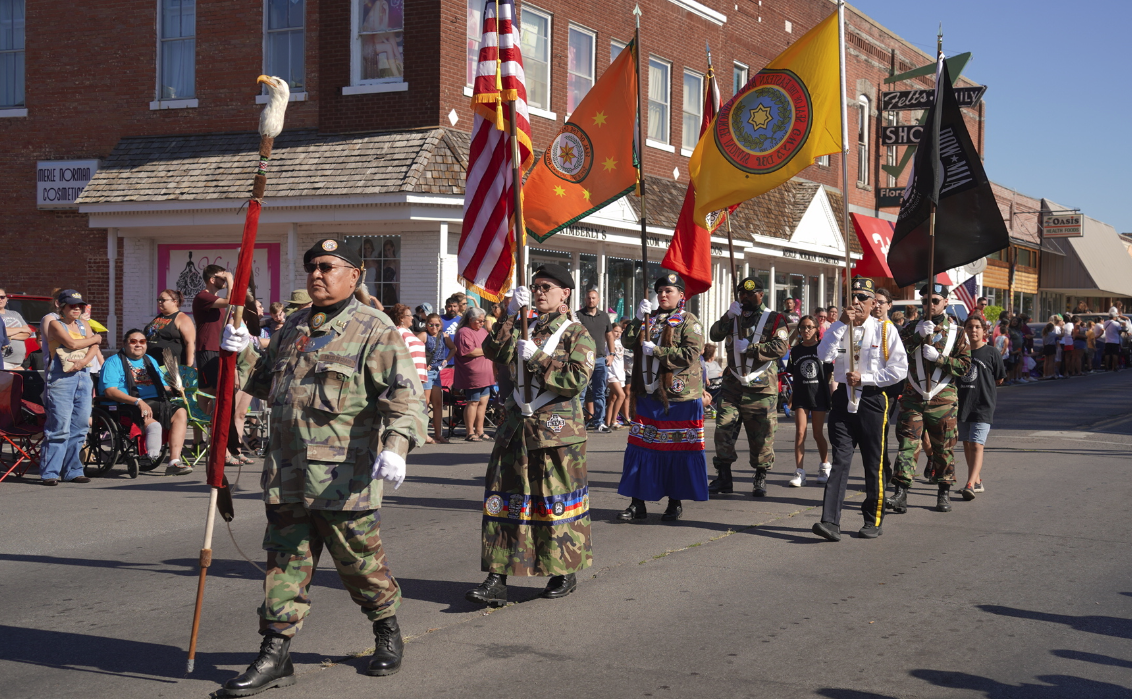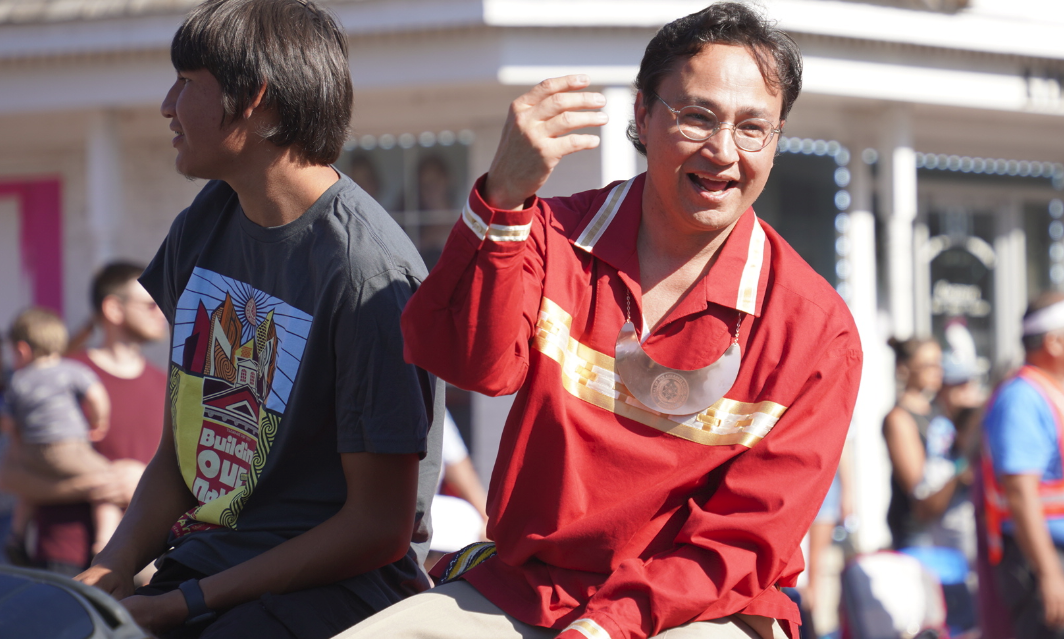
- Details
- By Darren Thompson
TAHLEQUAH, Okla. — The Cherokee Nation is celebrating its 71st Annual Cherokee National Holiday this weekend with dozens of scheduled cultural, entertainment, and athletic events at more than 30 locations throughout Tahlequah, Oklahoma, the Cherokee Nation’s capitol city.
The Cherokee National Holiday attracts more than 100,000 people from all over the world and is the biggest event of the year, according to the tribe.
Held every Labor Day Weekend, the Cherokee National Holiday commemorates the original signing of the 1839 Cherokee Constitution, which was signed on Sept. 6, 1839.
The Cherokee Nation began celebrating the Cherokee National Holiday in 1953 with a theme each year. This year’s theme was “Building our Nation, Strengthening our Sovereignty.” The theme aims to honor the Cherokee Nation as a sovereign nation and proclaim that Cherokee are a traditional people driving progress in a modern world through strength..
“We will continue to set the course for the brightest future for our tribe and its citizens,” Cherokee Nation’s Deputy Secretary of State Taralee Montgomery said at Saturday’s 2023 State of the Nation Address. “The work of our ancestors means that today we have more to celebrate than ever before.”
The Cherokee Nation is a largest populated federally recognized tribe in Indian Country, with more than 460,000 enrolled tribal citizens. Tribal leaders addressed the Nation by sharing some of its most recent investments in the tribe, including health care, education, law enforcement, and housing.
“We stand today as a nation meeting its responsibilities as a government, asserting our rights, but always looking to do more and go further,” Principal Chief of the Cherokee Nation of Oklahoma Chuck Hoskin, Jr. said during Saturday’s State of the Nation Address. “From an expanding criminal justice system, to protecting our most vulnerable citizens, to exercising our rights to hunt, fish and gather, to leveraging our strength to build up our economy, today we are realizing so many of the dreams of our ancestors.”

Last spring, the Cherokee Nation broke ground on a six-story $400 million hospital in Tahlequah. Once finished the hospital will span 400,000 square feet and include 127 beds, a Helipad on the roof and allow expanded services for Cherokee and Native citizens from other federally recognized tribes.
Last year, the Nation opened its first meat company, the 1839 Meat Company that delivers locally grown food to elders and Cherokee families in need. Through a partnership with the U.S. Dept. of Agriculture (USDA), the Cherokee Nation said it would commit $10 million over three years to feed more people in the region.
“That includes meat from our own meat processing plant,” Hoskin said. “That, my fellow Cherokees, is food sovereignty in action,”
Cherokee National Holiday Parade on Saturday afternoon included a two-hour procession, highlighting local Cherokee Nation leaders and royalty, visiting Tribal leadership and royalty including the Eastern Band of Cherokee, various businesses, organizations, and departments in the community, high school bands, and other dignitaries.
The parade included many other dignitaries from the Cherokee Nation, as well including the “Remember the Removal Bike Ride” cyclists. Ten Cherokee cyclists were part of a 950-mile journey who retraced the northern route of the Trail of Tears, in honor of their ancestors who were forcibly removed from their homelands in the southeast U.S. more than 180 years ago, in May 1838.

Other activities planned for the Cherokee National Holiday include an intertribal powwow, softball tournament, stickball tournament and other traditional games like blowgun and hatchet throwing, horseshoe tournament, gourd dancing, car show, marketplaces, firework show, and much more.
The Cherokee Holiday continues on Sunday. For more information on the Cherokee National Holiday, CLICK.
https://nativenewsonline.net/sovereignty/cherokee-nation-celebrates-cherokee-national-holiday-with-state-of-nation-address-and-other-events#sigProId3085edc088
More Stories Like This
Navajo Resources and Development Committee Issues Notice on Livestock Inspection RequirementsAmerican Prairie, Tribal Coalition Files Protest Over Rescinded Grazing Rights
Northern Cheyenne Push Back Against Trump Administration’s Effort to Alter Little Bighorn History
Florida Man Sentenced for Falsely Selling Imported Jewelry as Pueblo Indian–Made
Navajo Nation Declares State Of Emergency As Winter Storm Threatens Region
Help us defend tribal sovereignty.
At Native News Online, our mission is rooted in telling the stories that strengthen sovereignty and uplift Indigenous voices — not just at year’s end, but every single day.
Because of your generosity last year, we were able to keep our reporters on the ground in tribal communities, at national gatherings and in the halls of Congress — covering the issues that matter most to Indian Country: sovereignty, culture, education, health and economic opportunity.
That support sustained us through a tough year in 2025. Now, as we look to the year ahead, we need your help right now to ensure warrior journalism remains strong — reporting that defends tribal sovereignty, amplifies Native truth, and holds power accountable.
 The stakes couldn't be higher. Your support keeps Native voices heard, Native stories told and Native sovereignty defended.
The stakes couldn't be higher. Your support keeps Native voices heard, Native stories told and Native sovereignty defended.
Stand with Warrior Journalism today.
Levi Rickert (Potawatomi), Editor & Publisher

